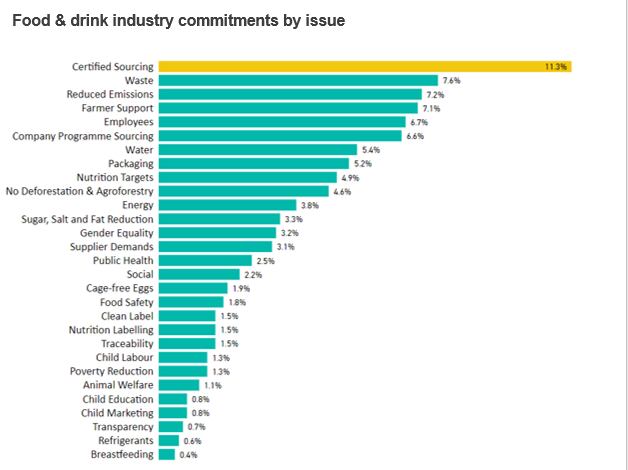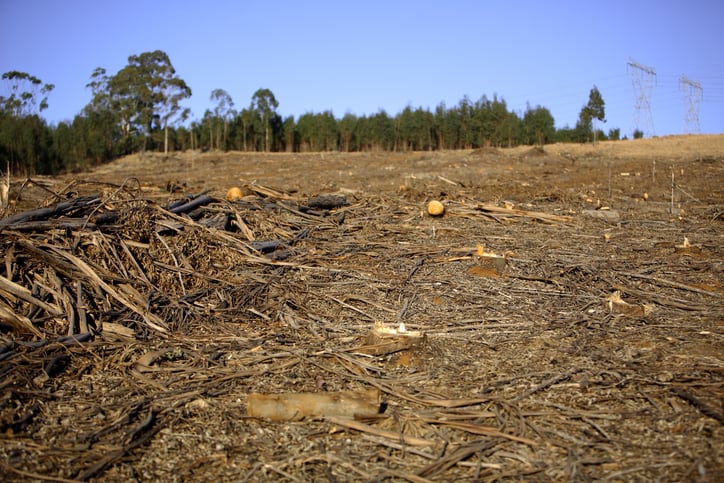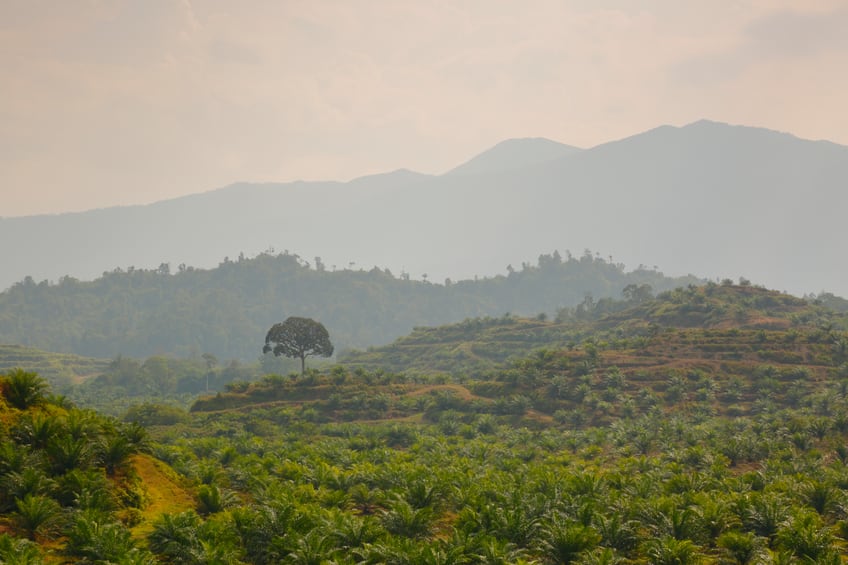CDP, an environmental non-profit organisation, flagged the issue after 70% of companies it identified as having ‘significant impact’ on deforestation, or being susceptible to deforestation risk, failed to respond to requests from investors and ‘large purchasing organisations’ to disclose forests data through the CDP reporting platform in 2018.
Of the 1,500 companies contacted, over 350 ‘ignored or declined requests’ to disclose impact on deforestation through CDP for the last three years, Morgan Gillespy, global director of forests at CDP told FoodNavigator.
Those who refused to engage include ‘all parts of the value chain’: producers and processors such as Rimbunan Hijau Group, the largest palm oil company in the rainforest region of Sarawak, Malaysia; traders such as global agriculture corporation Louis Dreyfus, the ‘only one’ of the four biggest global traders of soy that are not disclosing; manufacturers such as Mondelez, Oetker-Gruppe and Ferrero Spa; and retailers such as Kroger and Cencosud SA, Gillespy noted.
CDP’s new report, The Money Trees, finds that corporate transparency on forests lags behind other environmental issues such as climate change and water security. This is despite significant risks to business from deforestation, the ecological importance of forests and the role they must play in solving climate change, as well as the heightened environmental concern among investors, buyers and consumers.
Transparency ‘crucial’ for accountability
Gillespy said that it was ‘crucial’ for companies to report in a standardised and comparable way across the key commodities that drive deforestation.
Calling on food makers to disclose their impacts, risks and opportunities to their customers or investors through CDP, the sustainability expert stressed: “Transparency is crucial for providing accountability and insights to the market.”
CDP has seen a jump in investor interest in deforestation. The organisation now works with over 525 investors with $96 trillion in assets. This is up from just 35 investors that signed CDP’s first disclosure request in 2002.
Consumers are also increasingly aware of deforestation. Recent research commissioned in part by the Environmental Investigation Agency found that 87% of European consumers are demanding deforestation-free products.
While Gillespy acknowledged that the likes of Mondelez and Ferrero – both of whom failed to participate in the platform – have demonstrated ‘awareness and action in pockets of work’, in cocoa for instance, they are nevertheless ‘failing to dedicate resources to providing transparency’.
Does this lack of transparency translate to a lack of action? Not necessarily, CDP conceded.
“We simply don’t know as they are not disclosing the data,” Gillespy said. “Even if they are reporting information in their own sustainability reports it is not comparable to other companies and allows them to set the narrative they want to tell. Meanwhile CDP’s questionnaires are robust, comprehensive and standardised so companies all report the same relevant and comparable data.”
Is deforestation a priority in CSR?
The food sector’s approach to deforestation is mixed within the Corporate Social Responsibility (CSR) reporting cycle.
According to data from research provider Lumina Intelligence, which tracks CSR pledges against the United Nations Sustainable Development Goals, deforestation commitments are among the most common pledges made by 34 of the world’s largest food and drink companies.
Lumina Sustainability’s Food & Drink Sustainability 2019 - Global Progress Report shows UN SGD 15: Life on Land – the SDG dealing with forest conservation – is the third most committed against pledge, accounting to 7% of pledges.
Pledges on 'no deforestation and agroforestry' make up 4.6% of commitments on 'bespoke issues', Lumina revealed.

However, while companies are making public statements on deforestation, Lumina sustainability expert Oliver Nieburg said that this is not necessarily being implemented down the supply chain.
“Most companies are committed to zero deforestation, but few put in place demands on suppliers to make it possible,” he observed.
Moreover, large CPG corporations are, on the whole, more concerned about ‘reputational risk’ than the more existential threat deforestation poses to food security.
“It’s striking that companies report greater concern about the reputational risks of deforestation than the physical risks of extreme weather. The knock-on effect of deforestation could severely harm commodity supply chains and render the millions invested in certification and company sustainability programmes meaningless as farmers part of programmes struggle to adapt to weather extremes exacerbated by palm, timber, soy, cocoa and coffee-driven deforestation.”
‘The silence is deafening’
CDP’s Gillespy expressed concern that the failure of corporations to report on deforestation suggests many are ‘ignoring’ the impact of their supply chains on forests.
“The silence is deafening when it comes to the corporate response to deforestation. For too long corporations have ignored the impacts of their supply chains on the world’s forests and have not taken seriously the risks this poses – both to their business and the world.”
A failure to take decisive action on deforestation could have significant implications and the sector risks failing to meet commitments made under the New York Declaration on Forests, which aims to halve deforestation by 2020 and end it by 2030.
“We are not on track for either of these targets,” Gillespy warned. “It’s already half way through 2019 and deforestation continues at pace. Each year, five million hectares of forest are lost - equivalent to 15 football fields per minute.”
The reality that the New York Declaration targets are unlikely to be met was previously flagged in Global Canopy’s Forest 500 report earlier this year.
Gillespy believes a step-change is needed from industry: “The ambitions of commitments didn’t translate into ambitious actions and quick enough implementation. Even though it will be missed it, companies need to redouble their efforts to meet their commitments as soon as possible. Our data shows only 14% of companies have longer targets post-2020. They need to set new targets and start taking bold action.”
Alongside improved disclosure, CDP has identified four key actions that companies should be taking: setting clear and concrete targets, working with their supply chain, using certification and engaging with external initiatives to tackle deforestation collaboratively.
"A holistic approach is vital. Companies should not rely on third-party certification alone as this often doesn’t ensure sufficient due diligence to avoid exposure to deforestation and supplier compliance. Manufacturers and retailers are unable to implement action to halt deforestation alone but will need to collaborate with all parts of the value chain in key regions," Gillespy said.




